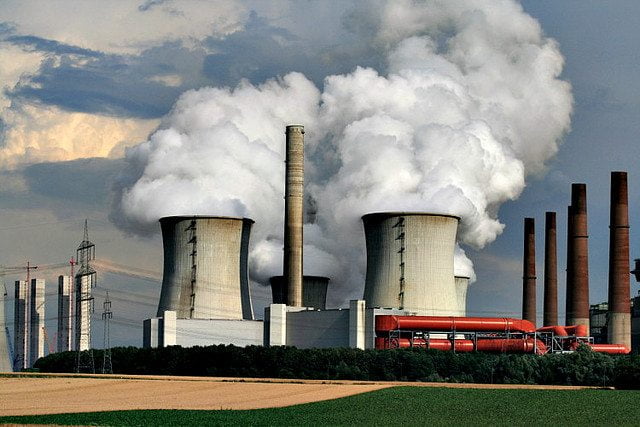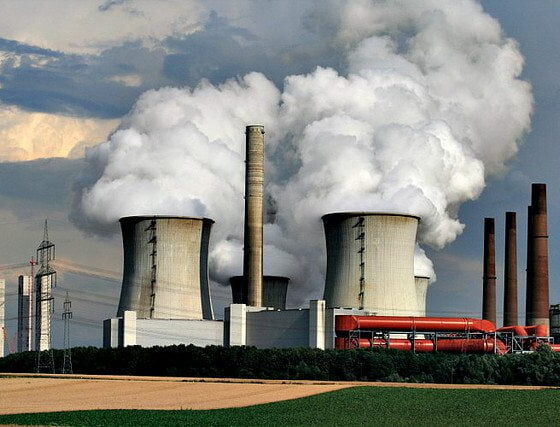

Energy
Fossil fuel divestment campaign targets high street banks
Customers of Britain’s biggest banks are to demand that high street institutions stop using their savings and investments to finance the fossil fuel industry, in a major new divestment campaign launched on Monday.
Blue & Green Tomorrow is currently running a crowdfunder to ensure its survival. Please pledge.
The ‘Divest!’ campaign, launched by the ethical banking reform group Move Your Money, calls on customers to write to their banks and threaten to withdraw their savings, unless they pledge to cease investment in the polluting industry.
A template letter available online gives the big five banks – HSBC, Barclays, RBS, Lloyds and Santander – until the end of January to commit to divestment. Together, these banks have so far issued more than £66 billion in corporate loans, equities and bonds into coal, tar sands, fracking, oil and gas extraction.
Timed to coincide with Good Money Week, the campaign will also feature demonstrations outside the London headquarters of HSBC, Barclays and RBS.
This follows a survey that found 39% of Britons are concerned about their savings and investments being used to fund fossil fuels, while 36% want their bank to stop investing in the sector.
The campaign represents a new approach for the growing global divestment movement, which has so far largely targeted institutions such as churches and universities.
Divestment campaigners have called on such investors to divest from oil, coal and gas firms because of the massive environmental impact that such companies have.
A recent Intergovernmental Panel on Climate Change’s (IPCC) report concluded that carbon-intensive energy production is the single biggest contributor to global warming.
Despite warnings that 80% of known fossil fuel reserves already identified must never be used if dangerous climate tipping points are to be avoided, energy companies continue to search for new reserves.
Aside from the ethical case, there is also a strong financial case for divestment. If policies are introduced to ensure that the majority of fossil fuel reserves that cannot be burnt remain buried, the assets of fossil fuel firms would be severely devalued – becoming ‘stranded assets’ – according to the UK-based Carbon Tracker Initiative, a pioneer in the field.
Significantly, the survey also revealed that public awareness of this ‘carbon bubble’ risk has increased from 18% last year to 45% as of Autumn 2014.
“Fossil fuel investment has never been environmentally acceptable. It is now no longer socially acceptable. It is fast becoming economically unacceptable too,” said Charlotte Webster, campaign director at Move Your Money.
“People’s everyday savings and investments are ultimately being used by banks to fund climate change, something we’ve found the public simply don’t want. ‘Divest!’ is everyone’s opportunity to tell their bank to clean up its act, or they will walk.”
Fossil fuel divestment will be one of the major talking points of this year’s Good Money Week – an annual event held by the UK Sustainable Investment and Finance Association (UKSIF) to raise awareness of sustainable, responsible and ethical investment and finance opportunities.
Following commitments made at climate talks in New York last month, a number of high profile investors have signed up to divestment. Earlier this month, Glasgow University became the first European university to join the movement.
Photo: jonasclemens via Flickr
Further reading:
Örebro becomes first Swedish city to divest from fossil fuels
Glasgow University to divest from fossil fuels
Citi, Morgan Stanley and Bank of America top funders of coal, says report
Climate Week: customers urged to ditch fossil fuel funding banks
Tonne of coal delivered to HSBC in protest against fossil fuel investments


 Environment12 months ago
Environment12 months agoAre Polymer Banknotes: an Eco-Friendly Trend or a Groundswell?

 Features11 months ago
Features11 months agoEco-Friendly Cryptocurrencies: Sustainable Investment Choices

 Features12 months ago
Features12 months agoEco-Friendly Crypto Traders Must Find the Right Exchange

 Energy11 months ago
Energy11 months agoThe Growing Role of Solar Panels in Ireland’s Energy Future





























